.jpg) Bindu Ananth Bindu Ananth
Bindu Ananth is the Chair of IFMR Trust and IFMR Holdings. She is a Director of all investee companies of IFMR Holdings. Prior to this, Bindu worked in ICICI Bank’s microfinance team between 2001 and 2005 and was head of the new product development team within their Rural Banking Group in 2007.
She has an under-graduate degree in Economics from Madras University and Masters Degrees from the Institute of Rural Management (IRMA) and Harvard University’s John. F. Kennedy School of Government. She is a Fellow of the Global Economic Society.
Bindu has co-edited “Financial Engineering for Low-Income Households”, a book published by SAGE. She has also published in the Economic and Political Weekly, OECD Trade Paper Series and the Small Enterprise Development Journal. She was a member of the RBI Committee on Comprehensive Financial Services for Low-Income Households and Small Businesses (2013). She was a member of the Government of India’s High Level Committee on Women (2014-15).
She currently serves as a Nominee Director for National Stock Exchange on the Board of Computer Age Management Services. She is a member of the Advisory Board of Columbia University’s India Initiative and Village Capital’s Fin-tech Advisory Board. |
|
 Carol Benson Carol Benson
Carol is a founding partner of Glenbrook. Carol offers clients over 25 years of experience in product, marketing, and strategy development with leading financial services providers in both wholesale and retail financial services.
Carol's practice at Glenbrook focuses on mobile payments, national infrastructures, and emerging technologies for financial services.
Before founding Glenbrook Partners, Carol was a managing director of the Global Institutional Services division of Deutsche Bank, in charge of marketing, client online services, and Internet development.
At Visa International, she led a group conducting early work on the use of credit cards online, and a project that pioneered database marketing and related consumer-privacy issues. Carol also founded and managed Visa's European product-development office, where she led a series of electronic-commerce and chip-card projects designed to bring European banks online.
Prior to her career with Visa International, Carol spent twelve years with Citibank, where she managed the development and market introduction of new payments products. Carol began her career as a corporate lending officer for large multinationals at both Bank of America and Citibank.
|
Sara G. Castellanos
Since November 2016 she is Researcher for Special Studies and Projects at the General Direction of Payment Systems and Corporate Services of Banco de México. At this institution, she previously worked as Advisor to the Board of Governors, and almost 10 years as Researcher in the Directions of Payment Systems and of Economic Studies. Outside Banco de México, she was Chief Economist at Mexico’s Antitrust Authority (Comisión Federal de Competencia Económica, Nov 2013 to Feb 2015) and Principal Economist at BBVA Bancomer.
Her investigations about the effects of monetary policy, the behavior of interest rates, wages and prices, and the development of bond markets and retail payment systems have been published in local and international scientific journals and books.
She obtained her PhD and MA degrees at the University of California Los Angeles (UCLA) and her BA at Instituto Tecnológico Autónomo de México (ITAM). |
Simone di Castri
Simone di Castri is an expert in policy development for financial and digital inclusion, with a focus on emerging markets. He has worked with global standard setters, senior policymakers, regulators and private sector executives from 40+ countries, designing and implementing new policies to improve the efficiency of the financial sector and the digital ecosystem. He leads the Policy and Ecosystem Development practice at BFA, a global consulting firm specializing in the development of financial services for low-income people around the world. He is the Director of the RegTech for Regulators Accelerator (R2A). He also teaches a course on “Digital Approaches to Development: ICT4D and Digital Citizenship” at the Fletcher School, Tufts University.
Prior to joining BFA, Simone was the Advocacy and Regulatory Director for the Mobile Money programme at the GSM Association. In this role he worked with the decision makers to address the policy and regulatory barriers that were preventing mobile financial services providers from scaling and serving the low-income customers, and with the industry to improve risk mitigation and compliance policies, launching and implementing the Code of Conduct for Mobile Money Providers. Simone has also worked for the Alliance for Financial Inclusion (AFI) where he managed AFI grant portfolio in Latin America and Francophone Africa, and conceived and coordinated the working group on financial consumer empowerment and market conduct. He has also worked as Policy Analyst at the World Bank (CGAP), and microfinance Junior Project Manager and Research Coordinator at the International Development Law Organization (IDLO). He is a lawyer, holds a PhD in Law and Economics.
Twitter: @ludicastri.
|
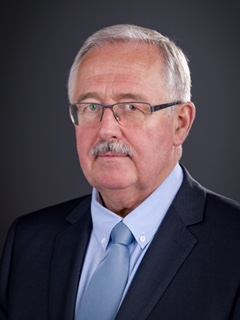 Yury Grin Yury Grin
Currently Dr. Grin is Deputy Director General of Intervale Group of companies, working in this capacity last three years. Intervale is leading Russian Group of companies with vast experience in the field of e-commerce and mobile payments gained during last 15 years.
Dr. Grin is also Vice-Chairman of ITU-T Focus Group on Digital Financial Services.
Before Intervale he worked during 7 years at International Telecommunication Union (ITU) in Geneva, Switzerland. Dr. Grin joined ITU in the year 2006 like a Chief of Conference and Publication Department. From year 2007 till year 2013 he was Deputy to the Director and Chief of Administration and Operations Coordination Department of the Telecommunication Development Bureau (BDT) of ITU. In this capacity he was heavily involved into assistance to developing countries in all fields of modern ICT/Telecommunications, including migration from analog to digital broadcasting, frequency management, cybersecurity, deployment of NGNs, mobile and e-applications like e-health, m-payments etc.
Prior to joining ITU, from 1994 to 2006, he worked in the International Cooperation Department of the Ministry for Information Technologies and Communications of the Russian Federation. He worked first as Deputy Director General and as from 2000 as Director General, when his was responsible for all relationships of the Ministry with Telecom and ICT Ministries of different countries, with ITU, UPU and other International Organizations like Intelsat, EUTELSAT, INTERSPUTNIK and others, foreign companies - both operators and manufacturers, as well as Intergovernmental Commissions/Committees, chaired by his Minister.
At that period he was also Vice-Chairman of ITU Council in year 2000 and Chairman of the ITU Council in year 2001. From 2001 till 2006 his was Chairman of ITU Council Working Group on preparation to the World Summit on Information Society. From year 2002 till year 2005 his was also Member of UN ICT Task Force, representing Russia in this body.
From 1990 to 1994, Dr. Grin was Deputy Director General of the R&D Institute of Economics and Composite Problems of Communications with responsibility for a broad range of analytical studies on the trends in modern telecommunications and related areas. He was also Editor-in Chief of Technical Journal, published by Institute for national telecommunication industry. From 1991 until 1998 he was also a Member of ITU Telecom Board.
From 1977 to 1990, he worked at the Moscow Radiocommunications R&D Institute, first as Leading Engineer, then as Senior Scientist and Chief of Department, leading research and development of new Satellite Communications Systems. This work involved the creation of the mathematical models, physical prototypes and full scale samples of most advanced Satellite Communications Equipment in the world at that time.
In 1978, Dr. Grin obtained his PhD in physics and mathematics at Lomonosov Moscow State University, from which he had graduated in 1974 with specialization in Radio physics.
Dr. Grin is the author of more than 80 scientific and technical publications and holds more than 20 copyrights on inventions in the field of communications and information technologies.
He has been awarded several high distinctions, such as:
- Medal of the Soviet Peace Fund in 1977
- Prize of the Council of Ministers of the USSR in the field of Science and Technologies in 1990
- Master of Communications in 2001
- Silver medal from the International Telecommunication Union in 2001
He is a member of the International Academy of Communications and a member of the Moscow Scientific Society.
Dr. Grin is married and has four children. His interests include classical music and art. He speaks Russian, English, Ukrainian, and some French and Spanish.
|
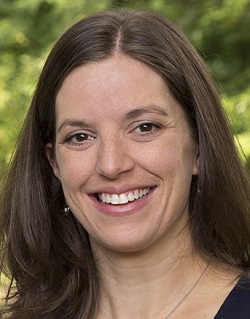 Michelle Kaffenberger Michelle Kaffenberger
Michelle Kaffenberger is an applied research consultant specializing in using research to better understand and improve the lives of the poor. With more than 12 years of experience in international development, she has designed, led, and advised on dozens of quantitative and qualitative research initiatives to produce meaningful and actionable insights for the World Bank, CGAP, the Bill & Melinda Gates Foundation, the UN's International Telecommunication Union, and the Grameen Foundation, among others. Her work focuses on financial inclusion, international education, and the role the private sector can play in achieving development outcomes.
Previously, Michelle was research manager and lead quantitative analyst for large-scale, nationally representative surveys on financial inclusion in eight countries across Africa and Asia. Prior to that, she established a new base of operations for an international nonprofit organization in India. She is skilled in quantitative and qualitative data analysis, including econometrics, and holds a Master’s in Development Economics from Vanderbilt University. |
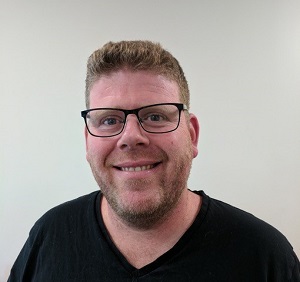 Assaf Klinger Assaf Klinger
Assaf Klinger is an accomplished cyber security entrepreneur, in the last 3 years, Assaf is Vaulto’s R&D lead. A native of Israel, he over has 20 years' experience as a full stack developer and researcher with specialty in cyber-telcom vulnerability research.
Assaf is an ISNU veteran of 13 years (Maj.) and has led the development of many complex systems, for this Assaf was decorated at 2011 with the Israel Defense award, the highest award a non-combatant in Israel, given for exceptional technological achievements and major contribution to the security if Israel.
Assaf has a BSc. in electrical engineering from Tel-Aviv university and an MBA from the Technion, in the past 3 years Assaf and his team at Vaulto created the first cyber-telecom security startup Aiming to protect the end-users from attacks while providing a seamless solution that doesn’t disrupt the user experience.
Assaf is a family man, married with twins, in his spare time he enjoys tinkering with electronics and music.
|
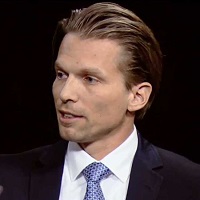 Thomas Lammer Thomas Lammer
Thomas Lammer is a Senior Market Infrastructure Expert at the European Central Bank’s Directorate General Market Infrastructure and Payments. He is dealing with a variety of policy related aspects of electronic payments (in specific card payments and instant payments) and is a member of the Working Group on Retail Payments of the Committee on Payments and Market Infrastructures (CPMI). From 2013-16 he worked as a Senior Financial Sector Specialist for the World Bank Group’s Payment Systems Development Group. During that time he contributed to payment system reforms in a number of countries, with focus on Africa and South East Asia. He supported financial inclusion initiatives, e.g. the Payments Aspects of Financial Inclusion Task Force, the Universal Financial Access 2020 agenda, and the ITU Focus Group on Digital Financial Services (co-chair of the interoperability working group) and his policy work focused on payment innovations and the costs of retail payments. From 2008-2013 he was Market Infrastructure Expert at the European Central Bank, contributing e.g. to the Single Euro Payments Area (SEPA) project and the European Forum for the Security of Retail Payments. From 2001-2008 he managed the implementation of several payment projects for the Austrian Central Bank. He graduated from the Vienna University for Economics and Business, was a visiting expert at Banca d’Italia and is the author of books, reports and articles on payment services.
|
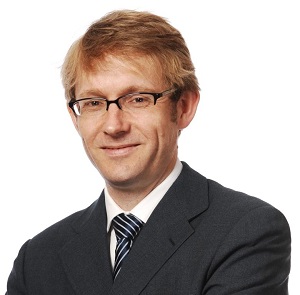 Rory Macmillan Rory Macmillan
Rory Macmillan is a partner in the Geneva office of the law firm Macmillan Keck. A native of Scotland, he has 22 years' experience in the ICT and financial services sector.
Rory regularly advises governments, regulators and the World's leading Internet and telecom companies on mobile digital financial services, network neutrality, over-the-top (OTT) regulatory issues, cloud services, data protection, privacy, identification and telecom regulation. He is currently leading market reviews in digital financial services and retail banking for several competition and regulatory authorities. He has authored numerous publications on such matters, including recently
Digital Financial Services: Regulating for Financial Inclusion and
Regulatory and policy trends impacting Digital Identity and the role of mobile.
Rory has drafted ICT laws in several countries, and arbitrated and mediated disputes between regulators and operators and among service providers. He has advised extensively in Africa, the Middle East and Asia-Pacific.
Before forming Macmillan Keck, Rory was an associate in the New York and London offices of the international law firm Debevoise & Plimpton. Rory holds his LLM from the Yale Law School in the US where he was a Fulbright and a Rotary Scholar, and his LLB with First Class Honours from the University of Edinburgh in the UK. |
.jpg) Paul Makin Paul Makin
Paul has been active in the specification, development and operation of DFS services in emerging markets since 2004, when he conceived of, and was the co-creator of, the M-PESA mobile money service. He offers significant experience of deploying innovative DFS services and solutions as well as an in-depth understanding of considered operational and information security best practice within the global retail payments industry. Paul was responsible for incorporating such best practice into the design of the TAP service in Nigeria and the M-PESA service in Kenya.
Paul’s varied work in the financial inclusion space has been at the two extremes, including: the at-the-coalface KYC registration of farmers with limited identity documentation in remote rural Nigeria; on-the-ground analysis of the use of identity (Aadhaar) for safety net programs in India; strategies for identity management, AML and privacy for recipients of remittances in Somalia; development of the business case for financial inclusion for a UK fintech operator; analysis of the use of digital identity for financial inclusion for the World Bank; and digital identity strategies for financial inclusion in South Africa.
|
 Sebastian Molineus Sebastian Molineus
Sebastian-A Molineus, a German national, is currently a Practice Director for the World Bank Group’s (WBG) Finance & Markets Global Practice. In this role, he is responsible for delivering the Practice’s financial, advisory and knowledge, and convening services across the Africa, East Asia and Pacific, and South Asia regions, in addition to the global agenda on Financial Inclusion and Access.
Sebastian joined the WBG’s International Finance Corporation (IFC) in 2002, where he was a Project Manager for the Russia Corporate Governance Project, based in Moscow. He later worked in the IFC’s Middle East & North Africa Department, where he led a region-wide Corporate Governance Program, based in Cairo. In 2008, he joined the Financial and Private Sector Development Vice-Presidency (FPD) as a Sr. Operations Officer in the Capital Markets Department, and between 2010 and 2012 he co-led the change management initiative to implement Global Practices across FPD. From 2012-2014, Sebastian was the Practice Manager of the Capital Markets Practice, where he was responsible for strategic, knowledge, resource, portfolio, and talent management.
Prior to joining the WBG, Sebastian worked at the OECD in the Financial, Fiscal, and Enterprise Affairs Division, where he focused on corporate governance and financial reporting reforms.
Sebastian holds an MBA from the HEC School of Management in France, and a Masters in European and International Law from the University of Passau’s School of Law in Germany. He is married with four children.
|
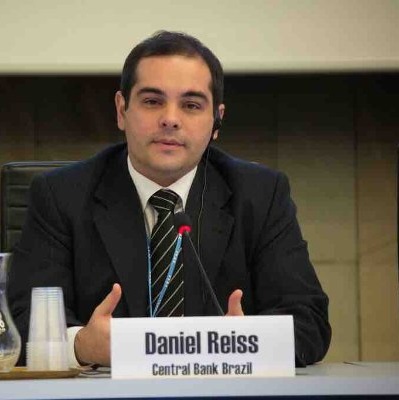 Daniel Reiss Daniel Reiss
Dr. Daniel Gersten Reiss has acted as vice-chairman to the ITU-T Focus Group Digital Financial Services and co-chairman to its Interoperability Working Group. He works for the Central Bank of Brazil and has been working with payment systems for almost a decade. In 2008-09, he managed the implementation of the Brazil-Argentina payment system in local currencies project (SML). Currently, he researches payment instrument choice and usage at the Department of Banking Operations and Payment System’s Research Division. He is also member of the BIS CPMI Working Group on Digital Innovations.
|